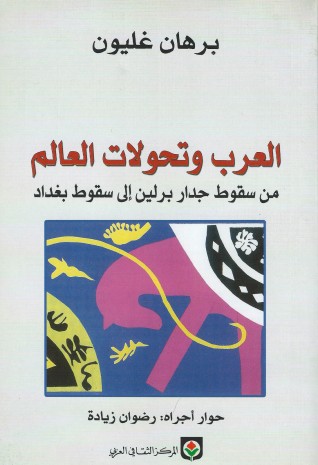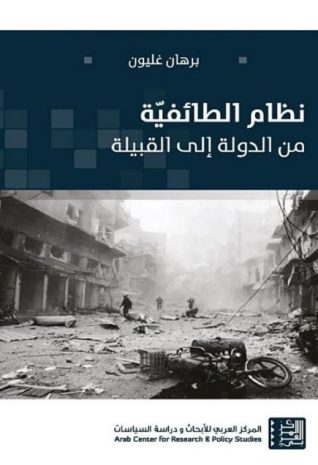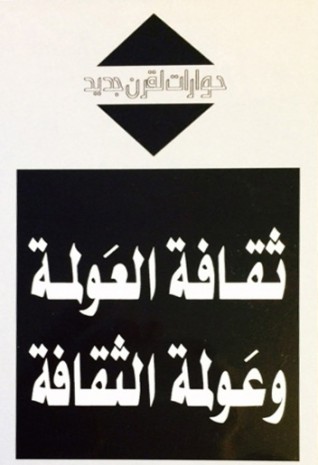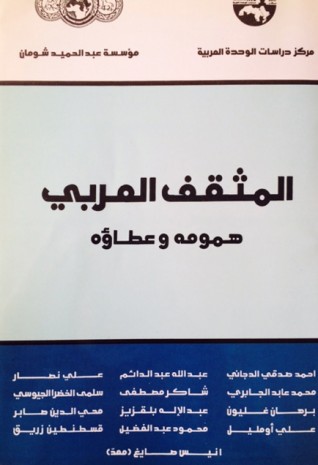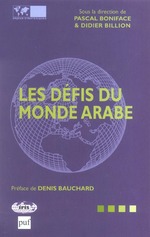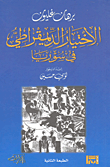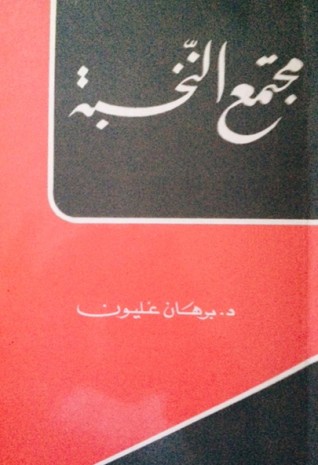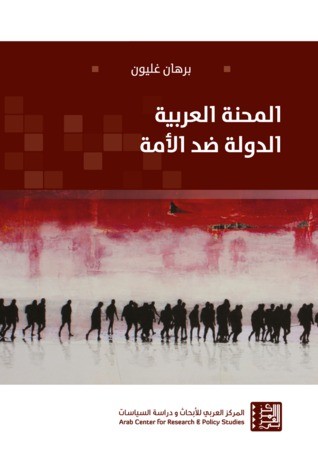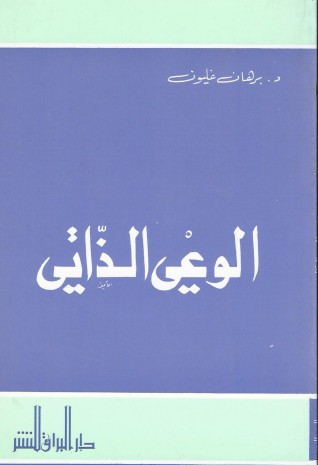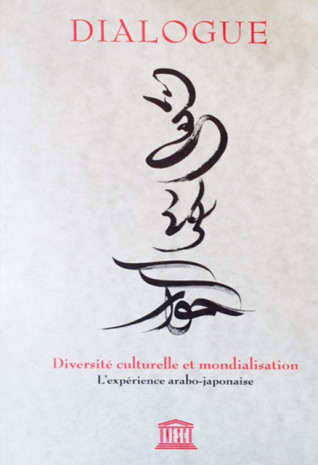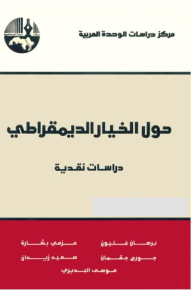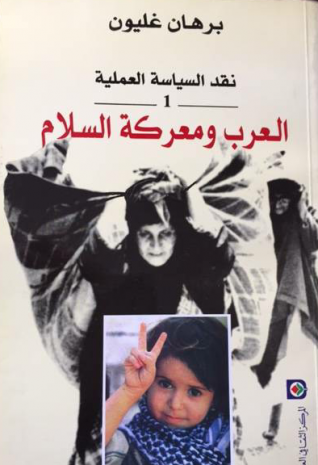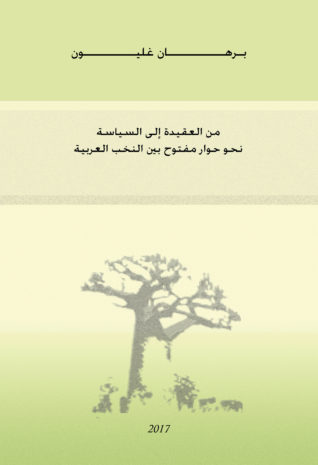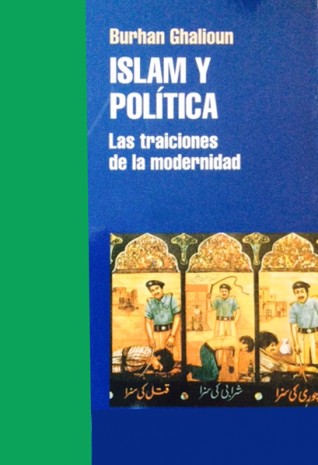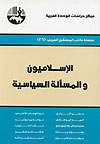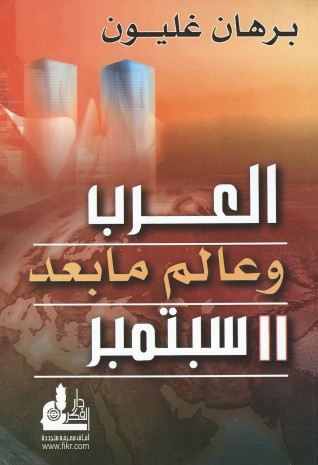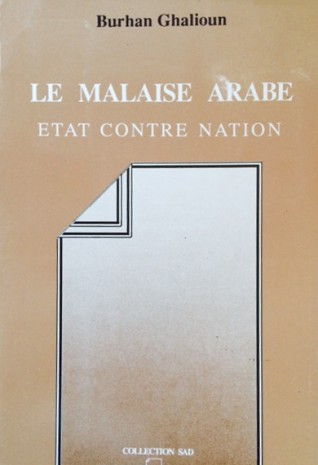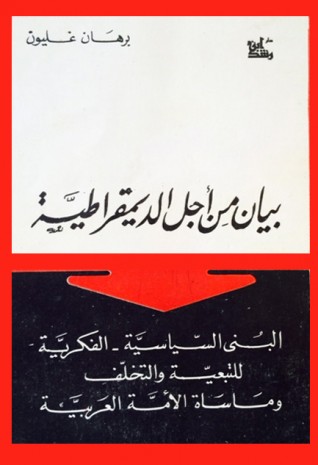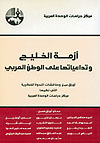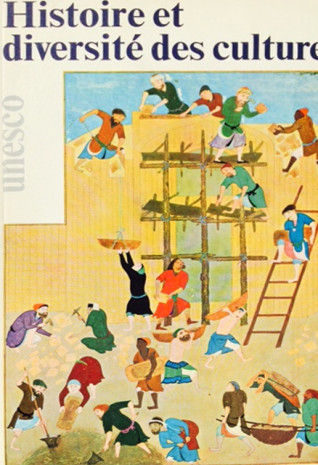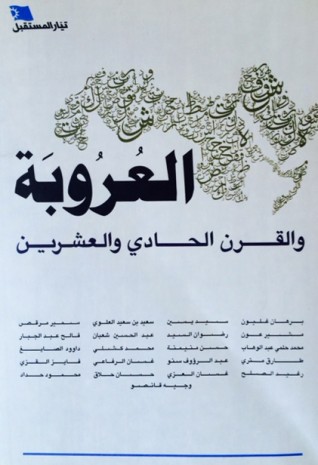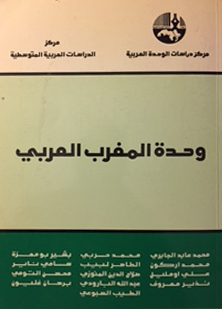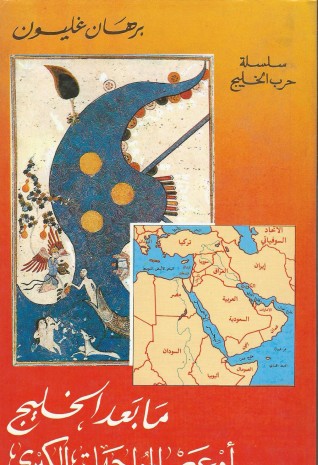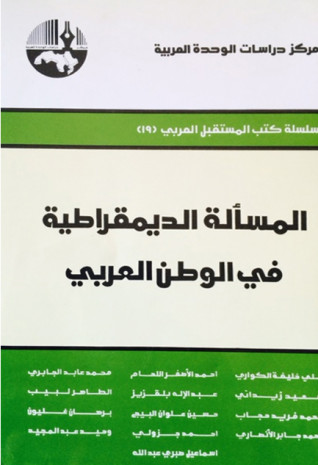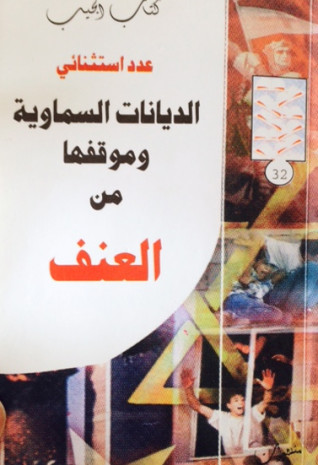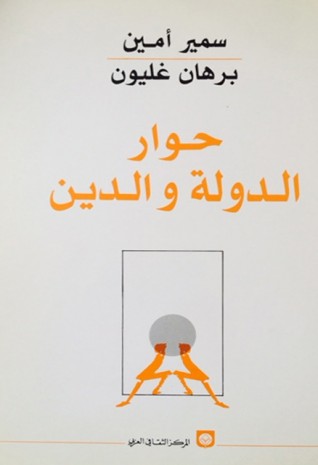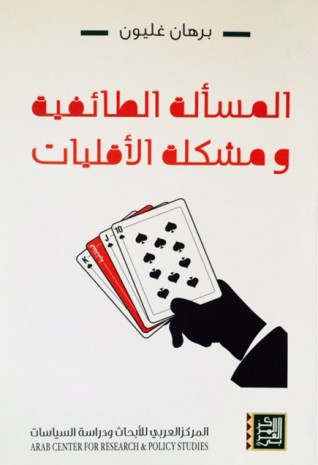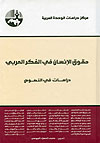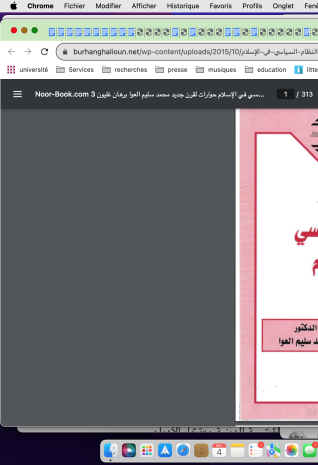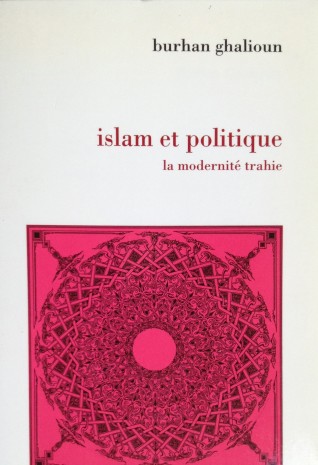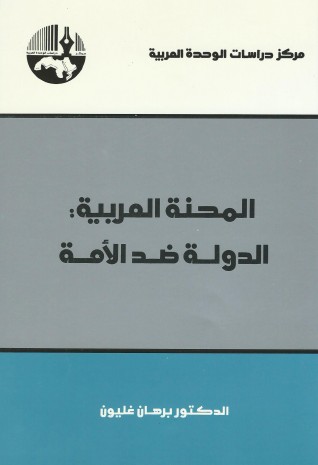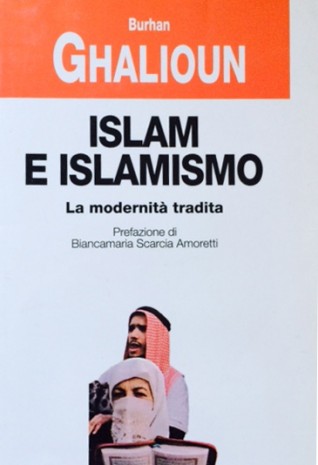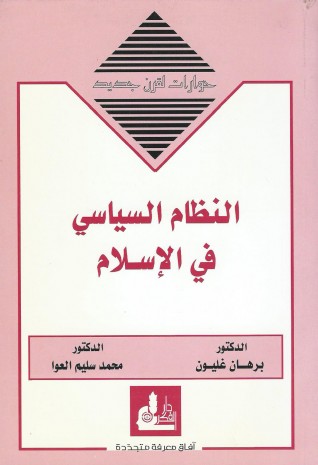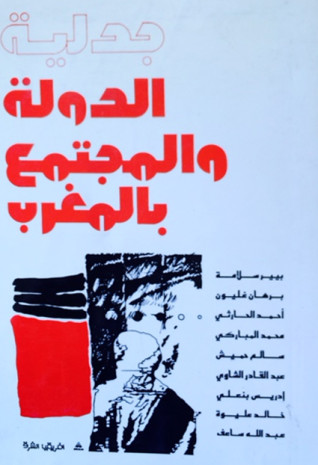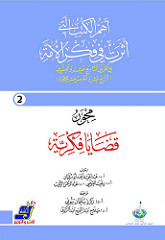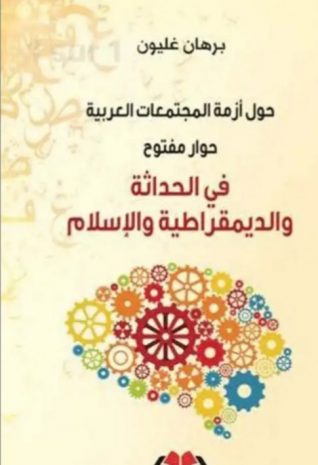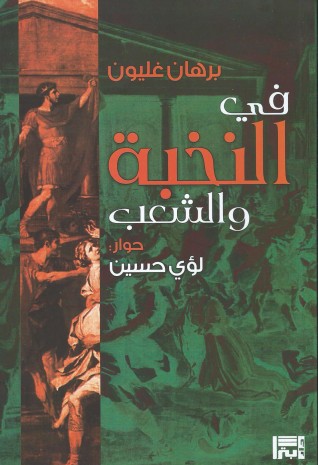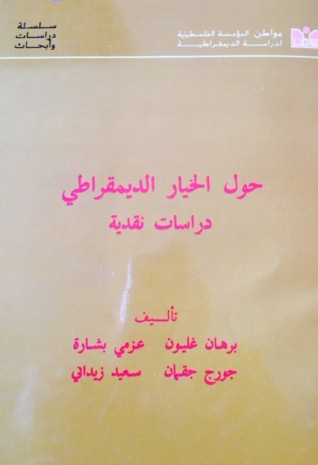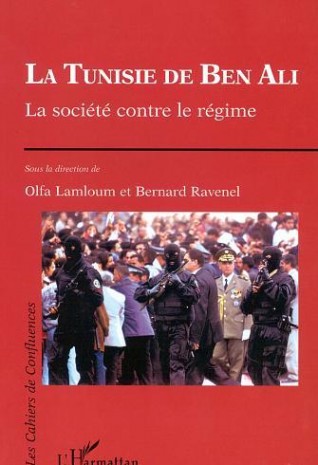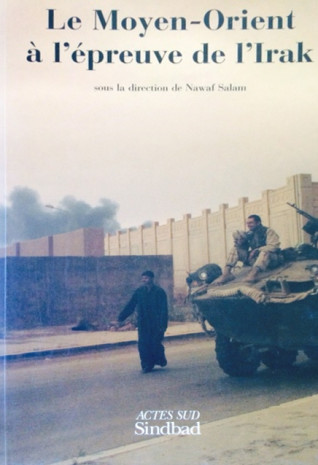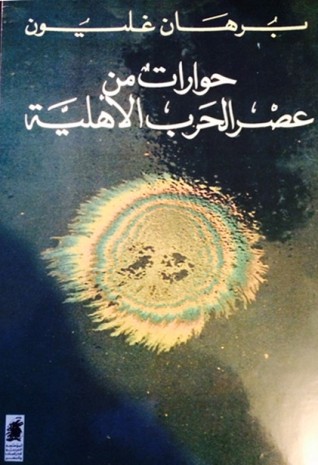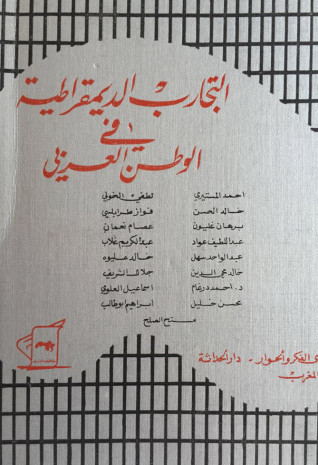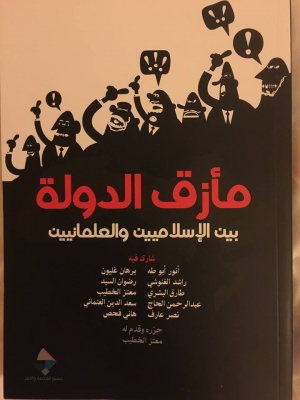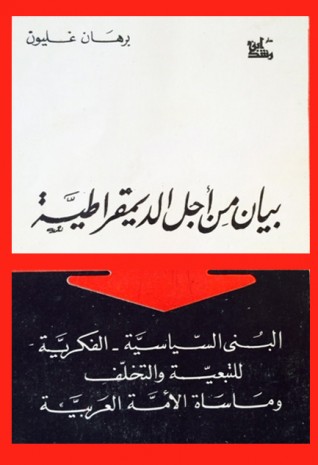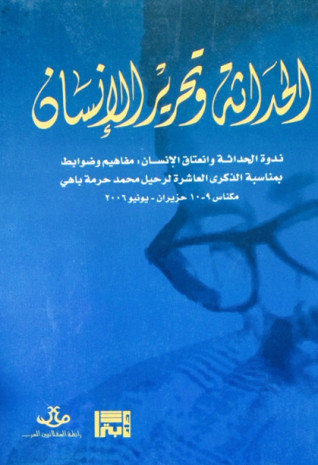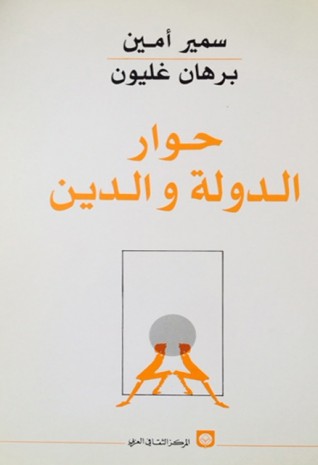THE PERSISTENCE OFARAB AUTHORITARIANISM
2004-10-04:: Journal of Democracy Volume 15
Burhan Ghalioun is director of the Centre d’Etudes sur l’OrientContemporain and professor of political sociology at the Sorbonne.He is the author of a dozen works on the politics and sociology of theArab world including, most recently, Islam etpolitique: La modernitétrahie(2003). The essay below was translated from the French by PhilipJ. Costopoulos.
I should begin by saluting Alfred Stepan for steering clear (in his July2003 essay in these pages) of the notion, widely broadcast in the Westernmedia, that Islam and Arab culture are incompatible with democracy.Having said that, I wish to make three remarks. The first is that “quantitative”analyses founded on hard-to-evaluate concepts such as“competitive elections” do not seem pertinent to me, all the more sosince the authoritarianism of Arab regimes is a commonplace of numerousacademic studies going back more than twenty years.
My second remark is that the notion of competitive elections revealslittle of the cruel realities of the oppression to which Arab societieshave been subjected over the last three decades. In such societies, thequestion of power relations cannot be broached in the absence of freeelections. Beyond the issue of dictatorship there is the complex problemof the almost complete rupture between governments that answer tono one—political predators unrestrained by law or morality—and thosewhom they govern, who find themselves reduced to a state of cruelmarginalization and indeed slavery. These oppressed citizenries aredenied the rights to express their opinions, to organize themselves freelyin civic associations, and to take part in the making of decisions thataffect their lives and futures.
The sorts of regimes that today predominate in the Arab worldhave nothing in common with the populist or nationalist regimesthat inaugurated the postindependence era. Despite their authoritariancharacter, those populist regimes achieved grand transformationsupon the path of democratization and modernization. By eliminatingthe remnants of feudalism and aristocratic parasitism, bydistributing land to peasants, by founding national state structuresand administrative services, and by pushing economic modernization,they succeeded in gaining the trust and support of large sectorsof the population, which saw in such regimes the stuff of emancipationand liberation. Their authoritarianism was almost hidden by theirpopularity.
This is not the case with the regimes that have replaced them. Thesenewer regimes enjoy no popular support. They serve only the interestsof the clans who hold power, they communicate in no way whatsoeverwith their citizenries, and they depend for their survival solely uponcoercion and multiple security services. These regimes go beyond dictatorship;they put the state in the service of elites corrupted against thenation. Such an organization of power presupposes and demands theisorganizationwhich is to say the oppression—of society. It is readilyapparent that the problem here goes far beyond the absence of freeelections.
My third remark is that the question of despotic power is inseparablefrom the whole syndrome of sociopolitical ills that afflicts theArab lands. The democratic deficit that troubles the bulk of thesecountries is accompanied by a host of problems in other domains—economic, social, administrative, military, cultural, and educational.
Bearing this in mind, we must take into view the whole of the system.Perhaps what we are seeing are aspects of that system’s crisis or indeedfailure. Despotism appears to be both a consequence of failureand the response favored by rulers faced with the resulting crisis—marked by weak or nonexistent economic growth, the degradation ofthe political and social climate, the decline of educational systems,and moral and ideological ruin. The culture of the elites cannot byitself explain the creation or evolution of these sociopolitical systems,and still less can it explain the crisis that is their consequenceand complement.
The failure of these systems—whether in their patriarchal, monarchistversion as in Saudi Arabia or their fascist, republican versionas in the Ba’athist states—is the result of the stagnation of power,meaning the lack of any turnover or renewal of elites. Shielded fromany contestation or even contestability, the existing powerholdersof the Arab world have turned into a kind of hereditary aristocracy.
They act as if they are the legitimate proprietors of whole states,whose resources and even populations the rulers may use accordingto their whims. This feudalization of modern states has come to sucha pass that presidents and other high officials now do not hesitate tobe seen grooming their own offspring to succeed them. Thus thesame families and clans—without having to render an account toanyone—retain power in the realm of politics, media, culture, andthe economy.
The question arises whether this lack of alternation in power is theconsequence of a culture—of peoples and their leaders—or whether itis the result of these countries’ social, political, and geopolitical circumstances.
It is my opinion that the feudalization of Arab regimes,the suppression of any stirrings of political life in its modern sense,and the return to older models are the results of the meeting of twoprocesses: first, the long phase of modernization “from above” thatleft societies in political and moral disarray and many citizens cut offfrom the support and reference points provided by tradition; and second,the convergence of powerholders’ interests with Western strategiesfor maintaining a strong and certain presence in this highly sensitiveregion of the globe. Thus authoritarian regimes served as a bulwarkfirst against Soviet influence during the Cold War and then against avast populist movement which, under the banner of Nasserism, opposedboth the Western neocolonial presence and the supremacy ofIsrael. Still later, these same authoritarian regimes struggled againstMuslim extremists attempting to succeed Arab nationalism by takingup its battle against a West that was blamed for Israeli expansionism,the region’s lack of development, and the persistence of authoritariangovernments.
Modernization in general, but more particularly when it is imposedfrom above, has certain perverse effects everywhere. Even as it reinforcescentralized power by equipping it with new technical means of organization, management, and control, modernization underminesolder sources of social solidarity and cohesion, leaving individualshelpless and adrift. Hence the state becomes stronger as it modernizes, while society grows more fragile. All transitional societies have livedthrough this paradoxical effect of modernization and found themselvesimprisoned by their respective states, or rather by the elites most closelyidentified with state power. Yet sooner or later this tyrannical dominationby centralized power provokes a revolt, and the appeal to democracyand against oppression ends up changing the system.
In the Arab world, particular circumstances have conspired to delaythis break with authoritarianism. The fear of a return of anti-Westernpopulism in one form or another, the desire to retain control over the world’s most important petroleum reserves, and the increasing politicaland moral support of Israel and its military supremacy—all these factorshave led the Western powers in general and the United States in particularto renew their ties with Arab regimes that seemed to display theireffectiveness.
The foundering of populism and its mass movements after Nasser’sdeath in 1970 left the civil societies of the Middle East practicallybereft of any alternative when faced with the new authoritarian powers.
Bolstered by the disarray of civil society and encouraged by the materialand political support of the West, those in power no longer feltuneasy. The inflow of oil and mineral rents, as well as salary remittancesfrom nationals working abroad, allowed the powerholders to discountpopular pressure. They had gained the means to create a clientelist stratumwhose backing would help them bypass the need for popular support.Endowed with considerable resources and freed from any possibility ofpopular pressure, the Arab regimes could ignore public opinion, anddid not have to worry about improving their governance or seekingpublic support. It seemed that their fate was tied to the benevolence ofWestern governments.
Thus it was that these regimes acquired a sense of being autonomousvis-`a-vis their own societies. Some of these rulers and governmentseven thought that they could be independent of their Western allies: Such was the case with Saddam Hussein, who has paid dearly for it. Forthe others, however, with Saudi Arabia at their head, the United Stateshas only had to brandish the threat of cutting its protégés loose to induce them hastily to elaborate so-called democratic reform programsthat would have been unthinkable just months before. The Saudi foreignminister has even, in a recent speech, found it necessary to recall that the main cause behind the crisis of Arab societies is the lack ofpopular involvement in decision making.
This shows how heavily the strategic options chosen by the UnitedStates and Europe have weighed—and weigh still—upon the choices ofelites, and hence upon the destiny of political systems, in this particularlystrategic region of the world. Decades of tyranny and exclusionhave left Arab civil societies highly disorganized, and they have notyet succeeded in reaching a new consensus.
A True Democratization of the Arab World?
It is this conjunction between the disarray of civil societies and unconditionalWestern support for existing regimes that explains theproblems besetting democratic transition in the Middle East. Since the1980s, various movements of political and social contestation havemade a stir throughout the Arab world. Several countries saw bread riotsthat gave way to strikes and political protests; assassinations, arrests,disappearances, and torture became current practices in most of them.
Campaigns of blind repression caused the deaths of tens of thousands ofcitizens, and yet drew little notice from the democratic world’s mediaand still less condemnation from its diplomats. For a long time, thedemocratic world turned a blind eye to atrocities committed by thesetyrannical regimes. As U.S. president George W. Bush put it in a speechto the National Endowment for Democracy in November 2003, Westernnations spent sixty years “excusing and accommodating the lack offreedom in the Middle East” because the democratic world had an interestin protecting regimes that seemed useful to Western strategy.
The “free world,” which never ceased to harry communist regimes onthe question of liberties, and which has spared no effort, political ormaterial, in the ex-communist lands of Central Europe and the former USSR—even going so far as accepting a large number of them for membershipin the European Union—has made a different set of choices in theArab region. Faced with the worsening oppression, social marginalization,and economic pauperization that are destabilizing Arab societies, Westerncapitals have fallen back on old standbys such as claims that Arabculture is incompatible with democratic values and that violence forms anatural part of this culture. The only transition that one could seek toimpose on the Arab states would be the shift from planned economies tomarkets and private enterprise. Only on this economic level were Arabsocieties allowed to express their modernity and their adherence to universalstandards.
When such circumstances are taken into account, it becomes easierto understand the failure of movements toward political and social contestationeven as Muslim extremism has triumphed in their midst. Thesystem was locked down so tightly that the forces of contestation hadno choice other than letting themselves be crushed or becoming insurgentsagainst the order that was oppressing them. If the vast bulk of thepopulation has resigned itself to staying out of politics, other parties—a minority to be sure—have not hesitated to take up arms in order totopple the established order in the name of a more just order. This orderis labeled “Islamist,” which is to say that it is grounded on the samevalues that have given the forces of contestation their unity and cohesion.
That said, just as the failure of Arab democratization movementsin the 1980s gave birth to the Islamist fundamentalist tidal wave, thedefeats inflicted on this mass-based and hence political fundamentalism have given birth to an armed extremist Islamism that has come torepresent its globalization.
Yet the spectacular and large-scale spread of violent Islamist contestationin the 1990s was unable to put matters right either for Arabsocieties (which now stand accused of having a cultural and religiousinclination to favor terrorism) or for the domestic democratic forces inthese countries, forces that found themselves caught in a pincers betweenofficial state terror and private Islamist terror. The firstbeneficiaries of this situation are the tyrannical Arab regimes: Henceforththey can depict themselves as the sole barrier against the spread ofmedieval Islamic obscurantism, and obtain from this fact even moresupport on the part of the West.
The situation of the 1990s recalled only too well that of the 1960s,when the very same Western powers threw their total support behindIsrael and various archaic and conservative Arab regimes in order toblunt the advance of Nasserite populist movements which, althoughsecular, were seen at the time as a major threat to the Western presencein the Middle East. This explains the tragic fate of the democratic movementand its defenders in the Arab world. The game of arms replaces thegame of politics and leaves no chance for a democratic perspective toemerge.
Despotism Provokes Anarchy
Thus, until the new U.S. position announced by President Bush inMarch 2004 (motivated by complications in Iraq), the Arab regimescontinued to benefit from the complaisance, and sometimes even theunconditional support, of the democratic world. These regimes wereseen as the least bad, indeed as the only available allies, in a regionbristling with threats to Western strategic interests. In order to guardagainst the risk that anti-Western regimes might arise, diplomats argued,there was no alternative but to support the existing powers. Thesediplomats thus confirmed what the Arab regimes never ceased to inscribein reality—namely, that despotism provokes anarchy bysystematically destroying all the political, civil, ethical, and moral bondsthat ensure the endurance and stability of society.
The question that arises today, with the United States and Europeaffirming their desire to break with their traditional policy of unconditionalsupport for the tyrannical Arab regimes, is to what degree theestablishment of democratic regimes in the Arab countries will betterpreserve vital Western interests. In other words, can the Western coalitionlive with representative democracies that truly express the will of the region’s peoples, even as the West maintains its traditional positionson such major questions as the Arab-Israeli conflict, control overoil resources, Arab integration, high-technology transfers, and the spread of negative stereotypes concerning Arabs and the world of Islam?
Western governments are now accurately taking stock of the disastrousconsequences that have flowed from their traditional policies ofmaintaining order in the Middle East by supporting inept and corrupt potentates. The West would like to see the situation evolve in the directionof greater middle-class political participation, less-arbitrary states,and more-professional administrations. Yet for such a new policy to become credible in the eyes of the Arab peoples, the Western powersmust avoid presenting Arabs with the idea that increased individualliberties can form a substitute for sovereignty, justice, and equality inrights and dignity.
The Western countries will not succeed in this project of democratization,however, unless they redefine their vital interests in the regionin such a way that Arab societies no longer see a continuation of thewill to dominate and impose subjection, but rather the beginnings of atrue strategic cooperation for the health of a region whose fate is closelylinked to that of Europe and the United States. Otherwise, Arab democracy will express itself through the emergence of more intenselyanti-Western regimes that will represent a rejection of the profoundlyneocolonial policies that have marked the attitude of the West towardthe Middle East since World War II. In this case, it is to be feared thatWestern governments will go back on their promises once more, betrayingthe cause of democracy—just as after World War I they betrayedtheir promise to create a unified Arab realm that would preserve theunity and avoid the parceling out of the Middle East.
Lacking the power to resolve the basic problems that have provokedthis crisis and delegitimized the Arab regimes—namely, the absence ofsovereignty, the continuation of the Arab-Israeli conflict, the lack ofregional cooperation, the cessation of economic and social development,and the feudalization of the state and public administration—Western governments will be obliged, in order to maintain the illusionof a promised yet impossible democratization, to have recourse to manipulation.
They cannot create the illusion of pluralism and alternationin power while keeping power in the hands of muscle-bound local cadreswho act as their feudal retainers or foreign tour guides without permanently working toward dividing the elites. This could resemble thetype of political arrangement that prevailed under colonialism, in whichguarantees underwriting the exercise of certain individual liberties wenthand-in-hand with foreign occupation and domination. Such an arrangementcould doubtless create, at least for a moment, a certain feeling ofemancipation, since Arab citizens would no longer have to see the samepowerholders eternally holding office. Yet in this case, the Middle Eastwill not have democratic regimes, and still less a chance to succeed inachieving urgently needed political, social, cultural, and economic reforms.
The crisis that stirs Arab societies today will be amplified, andamong its consequences will be an increased risk of a general explosionprovoked by pauperization and injustice, and by the lack of hopefulprospects and the ineluctable rise of joblessness.
The U.S.-led intervention in Iraq will quickly come to be seen as amajor step on the road toward the reestablishment of the neocolonialorder, confirmed and made worse by regional-policy choices and international-security strategies that are as irrational as they are counterproductive.
Loudly announced Euro-American democratization projects willfade into oblivion, having served only to short-circuit the unfoldingfight for an authentic democratic transformation begun by new eliteswho reject both local despotism and the strategies of neocolonialism,and who act in harmony with their peoples to integrate the Arab worldinto the universal material, political, and cultural circuits of civilization.

